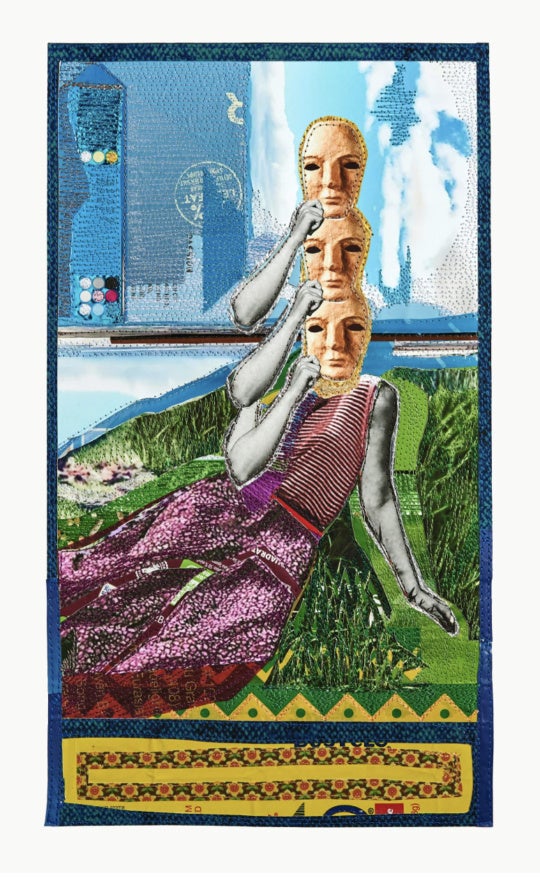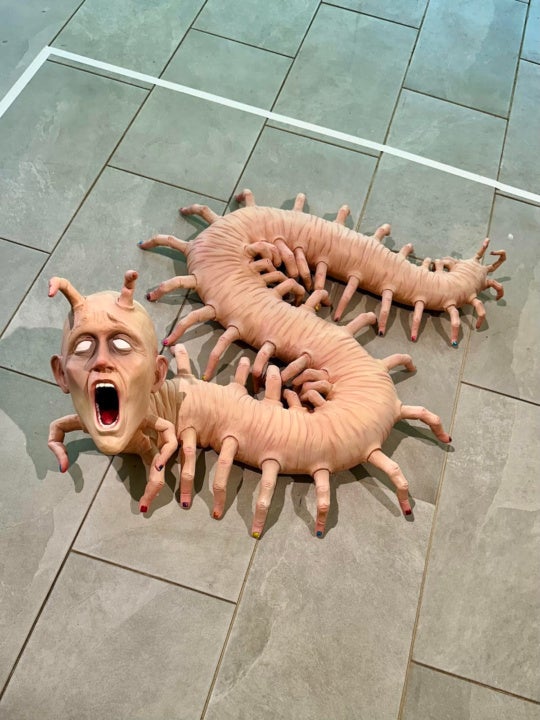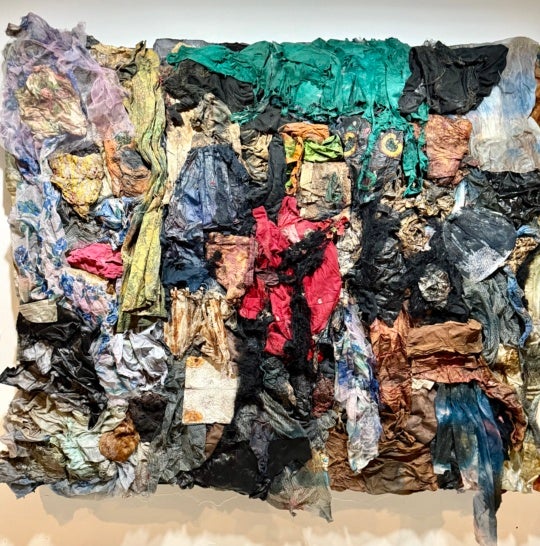
On August 14, Josh Russell released his most recent novel, A True History of the Captivation, Transport to Strange Lands, and Deliverance of Hannah Guttentag (Dzanc Books). A narrative following the title character through her graduate school experience, which begins to mirror the colonial captivity narratives she is studying. Since his first novel’s release in 1999, Russell has received a National Endowment for the Arts Literature Fellowship in Prose, the Independent Publisher Book Awards Bronze Medal for Literary Fiction, and the Bread Loaf Writers’ Conference Shane Stevens Fellowship in the Novel. At Georgia State University, he is the co-director of the Creative Writing department and an associate professor of English. I talked with him through email about the themes he explores in his work, how his approach has changed over the years, and how he feels about reading for audiences.
This is your third novel. How has your approach changed since writing your first, Yellow Jack?
It would be nice if each book got easier to write, or if I learned some trick or tricks to make it easier to write a novel, but each one demands such different things that writing a novel is always as much (and sometimes more) about figuring out how to write the book as it is about figuring out what the book’s about, so my approach is always changing. One specific thing that has changed about my approach is patience: I have more of it these days, and that helps.
You’ve also released a collection of short stories (Pretend You’ll Do It Again). When writing a short story, do the characters, plot and themes change as you go along or do you have it planned out before you start?
Just like novels, every story’s different. Some are so complete that writing feels like transcribing, others develop word by word, the word two words ahead unclear until I get there.
How does that compare to when you write novels?
I do more planning when I’m working on a novel. Even though I have more patience than I did ten years ago, or even last year, it’s hard to suffer a wrong turn that takes me a few weeks and a few dozen pages in the wrong direction. I do more and more “head work” now than I did when I was writing Yellow Jack and My Bright Midnight: thinking things out for weeks or months or, in the case of A True History, years: I didn’t write more than a handful of pages of prose the first two years after my daughter was born, but when I sat down to write, the novel was complete in my head—which was very, very weird.
It’s been said that writers deal with one or two main themes throughout their careers. Do you feel like this is true for you?
If you back up far enough, you can probably see that much literature (and visual art and music) deals with only one or two main themes. I’m always writing about people trying to figure out why they want what they want. Sorry, that’s vague, I know, but I’m not conscious of working always with Truth, Man’s Inhumanity to Man, etc.
How has your academic career impacted your career as a professional writer?
Having a job that includes as one of its responsibilities writing fiction makes things easier and harder. I have more time to write than I would if I worked answering phones or brewing coffee at Starbucks (I’ve done both), but I’m also required to write, which can sometimes make writing harder. It’s hard for me to untangle the two careers—”professional” writer and academic—because the publication of Yellow Jack, my first novel, seems to me to be the beginning of my career as a professional writer, and ten days after it came out, I started my first tenure-track academic job. In many ways it’s one career, then.
Can you describe your first public reading?
I guess that would’ve been grad school, when we all read at a coffeeshop right off campus: Baton Rouge, 1990 or ’91. There were probably twenty people there, and I have no idea what I read, but I’m sure there was the hiss of milk being steamed for a latte at some point. Later: beer.
Has the public reading experience changed for you over the years?
A little, I guess. Now there are more people in the audience I don’t know—if it’s a good night.
How do you choose what passages you read?
It’s got to stand alone, have some good zingers, and its got to take into account who’ll be in the audience. It’s never cool to read NC-17 material when there are ten-year-olds in the crowd.
Staying with public readings, have there been mistakes you’ve learned not to repeat?
What I call Poets’ Palate: that weird rhythm and the rising and falling voice . . .
Do you think it’s necessary for writers to read for audiences? Are there writers you have seen read that have impacted you?
No. The voice I trust most to read fiction to me is the voice in my head. This may have something to do with the fact that I’m an introvert—which is surely one reason I write fiction rather than making art that’s more performative. My love of fiction involves being alone with the writer: the connection, when I read, is between just the two of us. I don’t like sharing: I’m an only child.
That said, I will admit to the benefits of sharing a writer (or my writing) with a crowd. As someone who teaches writing, I recognize the value of demystification: Anne Carson is a human, just like me, therefore maybe I can do something as interesting as Anne Carson does. There’s also the value of proving that I know what I’m talking about: Hey, he doesn’t just tell me distillation and omission are important in narrative, he practices what he preaches.
And then there is the ready-made community: When you go to a reading, you’re in a crowd of people who care about fiction or poetry—sometimes very specific fiction or poetry—and those crowds can be fun to be a part of, even for a hardcore crowd-hater like me. Sometimes the crowd’s more exciting than the reader. I’ll admit that this is why I agree to give readings: It’s fun to be around people who care about what I’ve done, even if I believe that best way to interact with a book/writer is one-on-one.
This may make me sound like I want to limit access to art, but that’s not true; in fact, I’m experimenting with ways to make access to my writing (and hopefully the writing of others) less limited. Right now I’m working on a project called Flower & Utility. I’m calling it a “laboratory” because it’s going to be place where I conduct experiments in publishing. The first experiment will be to create a website which will allow people people various ways of interacting with what’s now a novella-in-progress. When the novella’s done, and the website’s live, there will be options to read the novella online; to download it as a free e-book; to download a DIY book kit that will allow a reader to print, fold, and bind a copy of the book (instructions included!); or to ask for a free handmade limited edition copy. I have plans for other experiments—a “deep map” about Illinois based on 99 magic lantern slides of the Rock Island Arsenal and my family’s history in the Land of Lincoln, a collection of single-sentence essays about art—and part of the laboratory model is that each experiment will demand I build the right equipment . . . So while this won’t be a performance, it will, hopefully make art available in the ways that public performances can: it won’t cost anything to be a part of the crowd.
Yes, but not in a good way. I don’t think I’ve ever heard someone read and thought, I must buy her book—except for Anne Carson, but come on: Anne Carson!
Are there other forms of art that influence your writing or your approach to public readings?
Currently I’m working on two projects that involve book arts, and that aspect of those projects is influencing all other aspects of the projects, which is exciting: I’ve never before thought of how the physical object of the book will contain and interact with the text I’m composing while I’m composing it. Before I began these projects, I thought about that stuff only when the text was done, and then what that might mean was being asked if I like cover A or cover B. Thinking about everything from sewing bindings to setting type while writing the story is wild.




